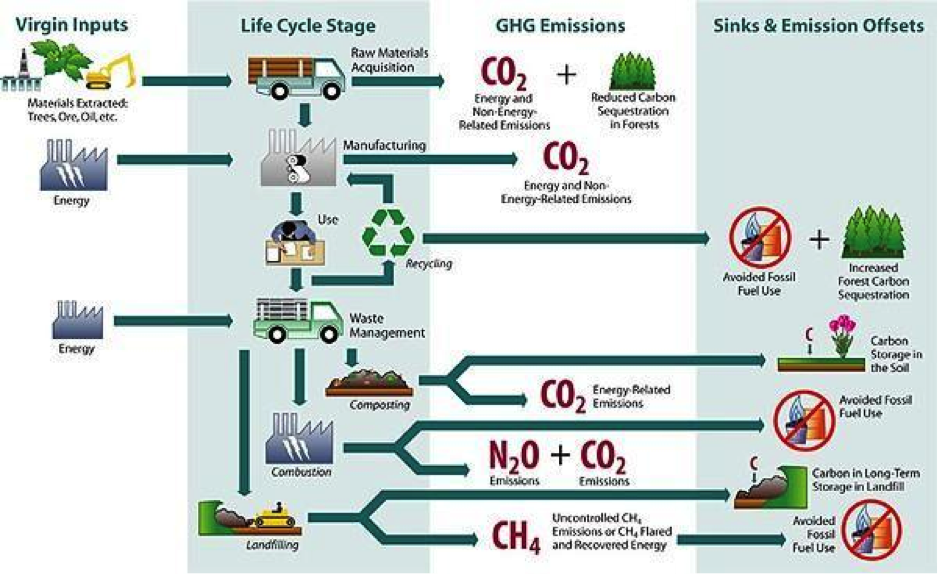System Impacts
Resources Impact
By instituting an effective building recycling program, recyclable material replaces virgin material through multiple product lives. Recycling avoids energy consumption and greenhouse gas (GHG) emissions from virgin material extraction, transporting, and processing. Recycling also avoids the creation of potent GHG pollutants, including methane, nitrous oxide, and carbon dioxide, from landfills and combustion. While these gasses can be captured to create energy, these methods are less environmentally preferable to recycling. Compost, created from food and yard waste, can supplement agricultural and urban soils with nutrients and take up carbon, acting as a GHG “sink” rather than an emission. The EPA’s Waste Reduction Model (WARM) calculates GHG emissions from different waste management practices for various material types.
The image illustrates the four main stages of product life-cycles, all of which provide opportunities for GHG emissions and/or sinks. These stages are: raw material acquisition, manufacturing, recycling, and waste management.

Source: U.S. EPA
Green Procurement: Products
Sustainable waste management and purchasing seeks to reduce the environmental impacts from products across the life-cycle. Purchase green products that are recyclable, compostable, and generate less waste (less packaging). Learn more about environmentally preferable procurement programs. Some examples include:
- CPG products - The EPA’s Comprehensive Procurement Guideline (CPG) program promotes the use of materials recovered from solid waste. Buying recycled-content products ensures that the materials collected in recycling programs will be used again in the manufacture of new products.
- Safer Choice products - The EPA’s Safer Choice labeled products identify products that have safer chemical ingredients for people and the environment.
- Bio-based products - For buildings with a composting program, consider purchasing the U.S. Department of Agriculture’s (USDA’s) certified BioPreferred products that are compostable.
- EPEAT - The Electronic Product Environmental Assessment Tool (EPEAT) is a comprehensive environmental rating system that makes it easy for purchasers to select environmentally preferable electronic products, including product take-back service and responsible recycling at the end of the products life.

